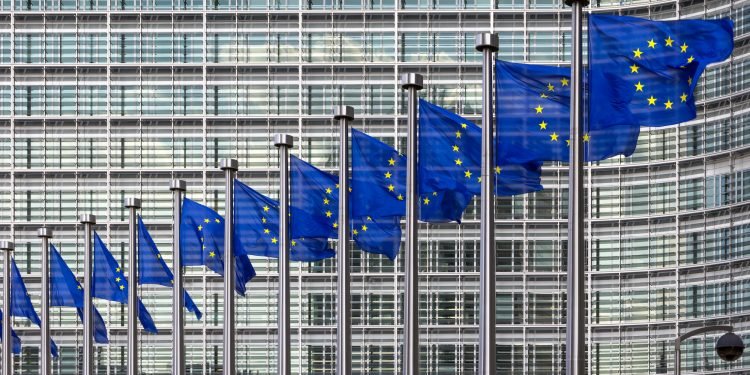Brussels (Brussels Morning) This week the European Parliament gets up to speed with a plenary in Brussels, where MEPs will review discussions on COVID-19 vaccines, Artificial Intelligence (AI) governance and the Portuguese Presidency’s programme of activities.
On Monday, the President of the European Court of Auditors’ (ECA), Klaus-Heiner Lehne, will present the 2019 annual report to the Parliament.
“Our adverse opinion on EU spending for the year 2019 is a reminder that we need clear and simple rules for all EU finances – and we also need effective checks on how the money is spent and whether the intended results are achieved”, said Lehne said.
COVID-19 vaccines
On Tuesday, the Parliament will listen to Council and European Commission statements about the EU global strategy on COVID-19 vaccinations. The Commission sees the vaccination as currently the only way to prevent COVID-19 infections and is pursuing a massive vaccination campaign to that end.
During the parliamentary debate, MEPs are likely to restate the need for greater clarity and transparency on the issues of COVID-19 vaccine contracts, authorisations, availability and their deployment.
“The EU joint procurement and advanced purchase agreements for anti-COVID-19 vaccines are very powerful and useful instruments for the EU as a whole. Together we are stronger. That is why we share the European Commission’s concern for unity and avoiding self-centred national positions that could undermine the collective leverage and co-operation”, MEP Jytte Guteland (S&D) declared.
MEPs are also expected to request additional explanations about the current status of the EU vaccines strategy for COVID-19, which the Commission launched in June 2020.
Artificial Intelligence
On Wednesday, the Parliament will cast a vote on the interpretation and application of international law as it applies to AI. MEPs are expected to outline their proposals on how to govern the use of AI for military and public purposes.
The parliamentary session is also expected to address matters of respect for human rights principles and meaningful human control in the use and development of AI. MEPs will likely raise issues such as the threat to fundamental human rights and national sovereignty that can arise from the use of AI in mass surveillance.
In an October 2020 report, the Parliament urged the Commission to develop a comprehensive and future-proof EU legal framework of ethical principles for the development, deployment and use of AI, robotics and related technologies – including software, algorithms and data.
Portuguese Presidency
Also on Wednesday, MEPs will discuss with Portugal’s Prime Minister António Costa and Commission President Ursula von der Leyen, the planned programme of the Portuguese Presidency of the EU, with its emphasis on addressing the social dimension of the COVID-19 pandemic, attaining an inclusive climate and digital transition and providing new impetus to EU relations with Africa and Latin America.
Last week, the Portuguese Presidency and the Commission officially announced the Social Summit, in Porto, Portugal, where the upcoming Action Plan to implement the European Pillar of Social Rights will be presented.
Again on Wednesday, MEPs will debate the inauguration of Joe Biden as the new US President, the future of EU-US relations, and the 6 January riots and storming of the US Capitol.
Right to disconnect
On Thursday, MEPs will vote on a EU law granting workers the right to disconnect digitally from work without facing consequences from employers.
They consider the right to disconnect a fundamental right that allows workers to refrain from engaging in work-related tasks and phone calls, emails and other electronic messages outside their working hours.
The same day, MEPs will question the Council and the Commission about measures the EU is taking to deal with the social and employment effects of the COVID-19 crisis.
The Parliament will vote on new rules that will allow member states to better support those most in need during post-pandemic recovery.




